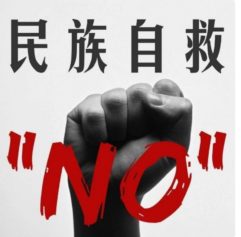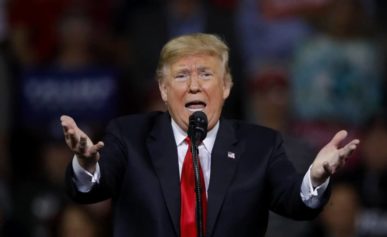Tensions between China and Japan over disputed islands in the East China Sea — just the latest in the historical animosity between the two nations — have escalated to the point where a high-ranking Chinese military officer actually raised the specter of nuclear weapons in referring to China’s willingness to defend itself.
The conflict in recent years has put a halt to significant progress in the relations between the two nations, which are separated by the East China Sea. China and Japan won’t even agree on the name of the unoccupied islands — called Senkaku in Japan and Diaoyu in China.
China’s Col. Liu Mingfu, of the National Defence University, blamed America’s ‘‘orchestration’’ and Japan’s ‘‘militarism’’ for the rising tensions.
‘‘America is the global tiger and Japan is Asia’s wolf and both are now madly biting China,’’ said Liu. ‘‘Of all the animals, Chinese people hate the wolf the most.”
He said that although China was a peaceful nation, it would fight to the death if seriously attacked.
It is rare for a Chinese military leader to make such aggressive remarks, but Chinese experts said the nation sometimes lets an official go rogue to send a statement to the world.
Because the U.S. is so intimately tied to the world’s second- and third-largest economies, it is in the interest of the U.S. to make sure the tensions between the two nations doesn’t escalate to more than talk.
“If this Japanese wolf again attacks America’s Pearl Harbor or Australia’s Darwin, how do you know it wouldn’t receive another nuclear bomb?’’ Liu said. ‘‘The world would hail if Japan receives such a blow.
‘‘I don’t want to mention China here, as it is sensitive,’’ he added.
Japan has warned that it would send up a “tracer” warning shot if China pilots flew in their airspace — and China has warned that it would consider such a shot a threat and would have to retaliate.
Chinese Major General Peng Guangqian said that Japan’s plan to fire tracer shots to scare off the Chinese is a joke, and that it “shows the stupidity, cruelty and failure” of the Japanese “to understand their own limitations.” He also interpreted a warning shot as a provocation, equating it as “firing the first shot,” one that would give them pass to retaliate.
While the islands were part of China for centuries, they came under Japan’s control more than a hundred years ago during a war between the two countries. They were managed by the U.S. after World War II, but then turned over to Japan in 1972. Though there is no construction on the island, the interest in ownership spiked after the discovery of possible oil reserves.
The disputed islands have been the source of considerable hostility between the two countries.
Last year, activists on both sides actually occupied the islands at some point, with the incidents leading to the largest-scale anti-Japanese protests in decades in China, with protesters vandalizing Japanese shops and cars. In September when Japan announced plans to buy the island from its private owners, the Chinese government sent six surveillance ships to the island, and Chinese protesters attacked Japanese diplomatic offices in Shanghai and Beijing.
Liu warned Australia not to follow the U.S. or Japan into any military conflict with China, saying Australia should play the role of a ”kind-hearted lamb,” and China would discourage it from being led astray.
”Australia should never play the jackal for the tiger or dance with the wolf,” he said.
Liu asked that his message be delivered to Australian Prime Minister Julia Gillard as she prepares to deliver a major speech on national security.
”American hegemony is not at its dawn and not at its zenith,” Liu said. ”It is at its sunset and night is coming.”


